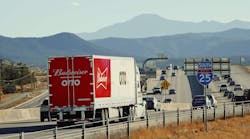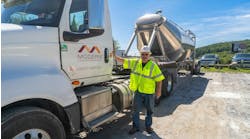The rush by states to pass regulations meant to attract development and testing of autonomous vehicles (AVs) runs the risk of creating unintended obstacles.
That was a takeaway from the latest report from the Eno Center for Transportation, which also studied how states can better align future infrastructure and workforce investments with the rapidly evolving technology.
“When writing laws or executive orders, states need to be careful not to overdesign reporting requirements for manufacturers and tech firms as they continue to test and deploy AVs,” the report said.
During a conference call, Paul Lewis, Eno’s vice president of policy and finance, cautioned against the growing patchwork of AV regulations across states. Eno is concerned, he said, with differences in definitions of autonomous vehicles between many of the various laws and executive orders. That can be a particularly tricky issue near states lines, where only a few miles separate different regulations and definitions of autonomous vehicles.
Lewis recommended states stick to the accepted definitions from SAE International and the National Highway Traffic Safety Administration.
“Make sure testing AVs is not only allowed, but also that it fosters the development of an entire ecosystem of automakers and/or tech firms, research institutes and localities engaged in the field,” the report stated.
During the call, Eno officials were critical of a recently approved New York law that created a one-year pilot program for autonomous testing. Besides the short time frame, cities have complained it does not accommodate testing of automated shuttles to move people over short distances.
On the same day the report was issued, Colorado became the latest state to pass legislation regulating autonomous vehicles. Advocacy groups including Securing America’s Future Energy (SAFE) praised the bill signed by Gov. John Hickenlooper for avoiding over regulation. The law states if an autonomous vehicle complies with every other state and federal law, then it can be tested, provided proper notice is given to transportation officials.
Meanwhile, Eno recommended greater harmonization in other areas as well.
“States need to work with the National Highway Traffic Safety Administration to harmonize tort and liability laws and enable consistent, national safety standards for commercial AV certification,” the report said.
Looking at infrastructure needs, Stanford Turner, a co-author of the report, said states interested in attracting autonomous vehicles should ensure roads are well maintained and properly marked. Turner suggested states should study vehicle-to-infrastructure technology and other emerging communications technologies.
To help fund these needs, states should look into adopting a fee for autonomous vehicles, which would help offset lost revenue fuel taxes or moving violations. This idea was backed by Mary Peters, former secretary of the U.S. Department of Transportation, in an opinion piece published over the weekend.
Turner credited Tennessee for creating a system that, if fully implemented, will collect 1 cent per mile for two-axle autonomous vehicles, and 2 cents per mile for vehicles with more than two axles .
The report also recommended states better prep for future impacts of AVs on the overall workforce by investing in programs that will help retrain workers.
For example, partnering with schools and the private sector for career development can enhance efforts to mitigate job losses.




